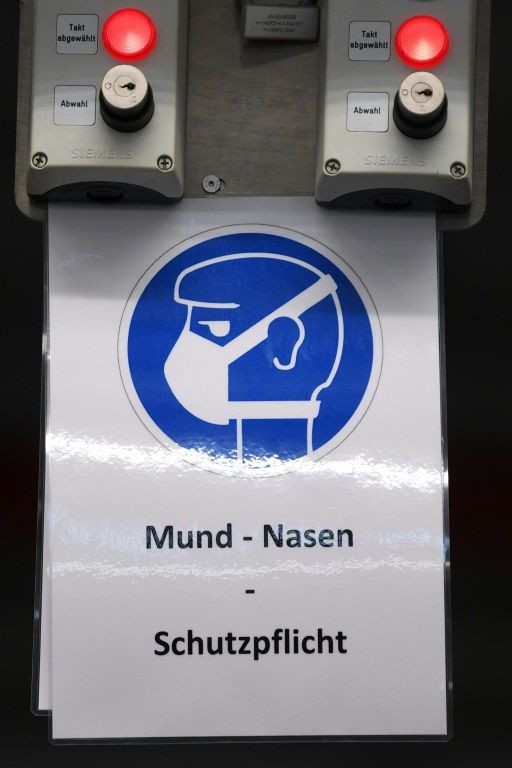Germany Faces 'Worst Recession' In Post-war History
German output will suffer a record slump this year over the coronavirus crisis, the government warned Wednesday, pushing Europe's top economy into a painful recession.
Gross domestic product (GDP) is expected to shrink by a record 6.3 percent as demand for exports plummets and lockdown restrictions weigh on domestic consumption, Economy Minister Peter Altmaier said in Berlin.
"We will experience the worst recession in the history of the federal republic" founded in 1949, Altmaier said.
"The effects of the coronavirus pandemic will push our economy into a recession after 10 years of growth."

This year's forecast drop in GDP is worse than during the global financial crisis in 2009, when Germany's economy contracted by more than five percent.
If the government's projection is confirmed, 2020 will mark the biggest contraction since federal statistics authority Destatis began keeping records in 1970.
The government offered a glimmer of hope however, predicting that the economy would bounce back in 2021 and grow by 5.2 percent as the virus impact wanes and businesses reopen.
Altmaier pointed out that the global economy as a whole is expected to tip into recession as the world battles the coronavirus fallout, with the International Monetary Fund predicting a worldwide contraction of some 2.8 percent in 2020.
Export champion Germany in particular will feel the pain from disruptions to supply chains and lower demand for made-in-Germany goods from abroad, he said.

Exports are expected to plunge by 11.6 percent in 2020, according to the economy ministry.
Job fears and coronavirus restrictions that have kept shops and entertainment venues closed are set to weigh heavily on demand at home too, dealing a blow to the key growth driver of domestic consumption.
At the same time, international demand and supply shocks will also sap appetite for producer goods in Germany, Altmaier said.
Overall, imports are slated to dip by just over eight percent -- slightly narrowing the nation's famously massive trade surplus as exports fall faster.

The worst of the virus impact will hit Germany in the second quarter, Altmaier said, before a rebound is expected to get under way.
Economic institutes recently forecast that Germany's GDP would shrink by nearly 10 percent between April and June, in what would be a historic decline.
The dire outlook is set to leave its mark on the country's employment levels.
Germany has long enjoyed record-low unemployment at around five percent, but this is expected to climb to 5.8 percent this year.
To help cushion the blow for companies and workers, the German government has unveiled a massive rescue package worth over one trillion euros.
It includes state-backed loan guarantees, direct cash injections and schemes to put workers on reduced hours to avoid layoffs.
Around three million workers have already been placed on the short-time work scheme, Altmaier said, which sees the government top up salaries and is known as "Kurzarbeit" in German.
Several big-name firms such as sportswear maker Adidas, Condor airline and travel firm TUI have already received hundreds of millions of euros in government-backed loans, while Lufthansa is still negotiating a potential bailout.
Altmaier said the economy would gather steam again as the coronavirus restrictions are gradually lifted, with Germany taking the first cautious steps already by reopening some shops and schools.
Car giants Volkswagen and Daimler have also restarted some assembly lines.
But Altmaier warned against acting too hastily.
"We can't risk a second wave of infections," he said, adding that he was in favour of a step-by-step approach "if the (infection) numbers support it".
"This is a test of endurance," he said. "We can't put the success we've achieved at risk."
© Copyright AFP 2024. All rights reserved.




















